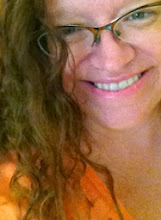Okay, two movies behind, and it’s only January. I’m starting to feel like Alice’s rabbit a bit here – late, late for a very important date – and wouldn’t Van Johnson be mad?
Well, he might be, but I hope his spirit takes this classic review in the spirit I’ve intended to convey – one of respect for a kind man and professional actor, just one mired in the conventions of his day.
As for my viewing schedule difficulties, the answer that many of you have been seeking is finally here: yes, this is getting hard. I’m getting heavily reacquainted with the 10:30 p.m. – midnight crowd. But as my favorite many-tentacled movie beasties love to cry out, “Never Give Up! Never Surrender!”
Film 17: “The End of the Affair” (1955)
Adapted by Lenore Coffee (“Young at Heart,” “Evelyn Prentice”) from a novel by Graham Greene
Directed by Edward Dmytryk (“The Caine Mutiny,” “Raintree County”)
Who knew 1999’s excellent, gritty, down in the sheets, jealous and angry “End of the Affair” with Ralph Fiennes and Julianne Moore was a remake? Not I, said the fly. But as so often in Hollywood, it was, and in the original film of the same name (adapted by screenwriting great Lenore Coffee from Graham Greene’s novel), Deborah Kerr and Van Johnson prove that 1955 knew a little bit about desire, too.
What’s fantastic about this movie: Deborah Kerr – always a great actress in Lady’s clothing – gets a chance to play someone unsympathetic – the cheating wife – and she’s heartbreaking. Even with the studio ending.
BUT what’s fascinating about this movie: Van Johnson (Gene Kelly’s All-American pal in “Brigadoon”) – the boyish, red-haired, perky male equivalent of Debbie Reynolds – goes dark. He spends the whole movie looking as if he’s just come off a black-and-white bender, age and sun spots replacing his normally smooth, pancaked, tan perfection. Yes, he scowled in other films, but it was the same scowl from film to film. (One he’d practiced in the mirror, I’d bet.) Here, Johnson blatantly, desperately, amateurishly goes for something deeper, something like raw emotion, something like – dare I say it? – Method acting? It was 1955 after all, and the studio system was shredding even as the stars kept arriving for work. The big B was busy flattening his male competition, shouting and groaning his way through “On the Waterfront” and “Streetcar Named Desire.” Hard-working, make-no-trouble, everyday soldiers like Johnson had to be shaking. Where was his place in this Brave New World?
Now, anybody already ensconced in a profession whose entire skill set shifts overnight is going to be unprepared for the job requirements. Think record album manufacturers when faced with the cassette tape, or land-war generals in 1915 France dealing with the Tommy gun. Johnson clearly feels he’s not quite there, bowing to Kerr in all of their scenes for guidance, allowing his nervousness as an actor to nag at every corner of his performance. And yet, he goes for it. He finds a way through the tape reels and hails of bullets to give us the most underwrought, honestly played role of his career. He’s no Brando, no Kerr, but he does show us – just this once – a little of his soul on film. I think it shows up best in his arguments with Kerr, the lover who resists leaving her husband. He bullies her, cajoles her, bribes her – whatever he thinks might work – and halfway through these delicious arguments, he forgets to pose, to look pretty and even, ever so briefly, to Be Real. He just is – vulnerable and confused and beautiful.
The horrible disaster of this film for me is its legacy – that Johnson never again went for it like he does here. He survived the studio breakdown instead by adopting a healthy dose of self-mockery – so entertaining in “Divorce American Style” – or a mask of staged anger – in all his later war films – that comprise the lions’ share of his subsequent performances. But for the Van Johnson that might have been, I grieve that there is no further evidence than “The End of the Affair.”
Film 18: “The Big Animal” (‘Duze Zwierze’, Poland) (2000)
Written by Krzysztof Kieslowski, based on a story by Kazimierz Orlos
Directed by Jerzy Stuhr
So now I’ve taken all my time on the first review, I’m going to have to give this one short shrift.
That’s probably okay, since the premise is easy to understand. A traveling circus in rural, Communist-era Poland leaves behind a camel, which local childless couple Zygmunt (Jerzy Stuhr, a favorite actor in Poland) and Marysia (Anna Dymna) Sawicki adopt. Funny, right? Not to their neighbors, who want to make money off it, or to the authorities who want it “to be useful.” The Sawickis’ tale of clinging to something beautiful and original in the midst of pressure to conform held me spellbound. This is no grainy, out-of-the-back-of-a-lorry film either. The photography is crisp and lean, and on many occasions, inspired. How many cameramen have managed to make a camel leering out of his stable at a mob behind his ‘parents’ seem human? Can’t think of a single one. Simple and short – at just an hour and 12 minutes – this darkly comedic darling will remind you of Charlie Chaplin’s simple beauty. Very few words required.
Happy Birthday Elliott Gould
-
Happy Birthday to one of the all-time greats and one of the coolest of the
cool Elliott Gould. From my 2019 New Beverly interview with Elliott Gould
about ...
2 years ago





No comments:
Post a Comment